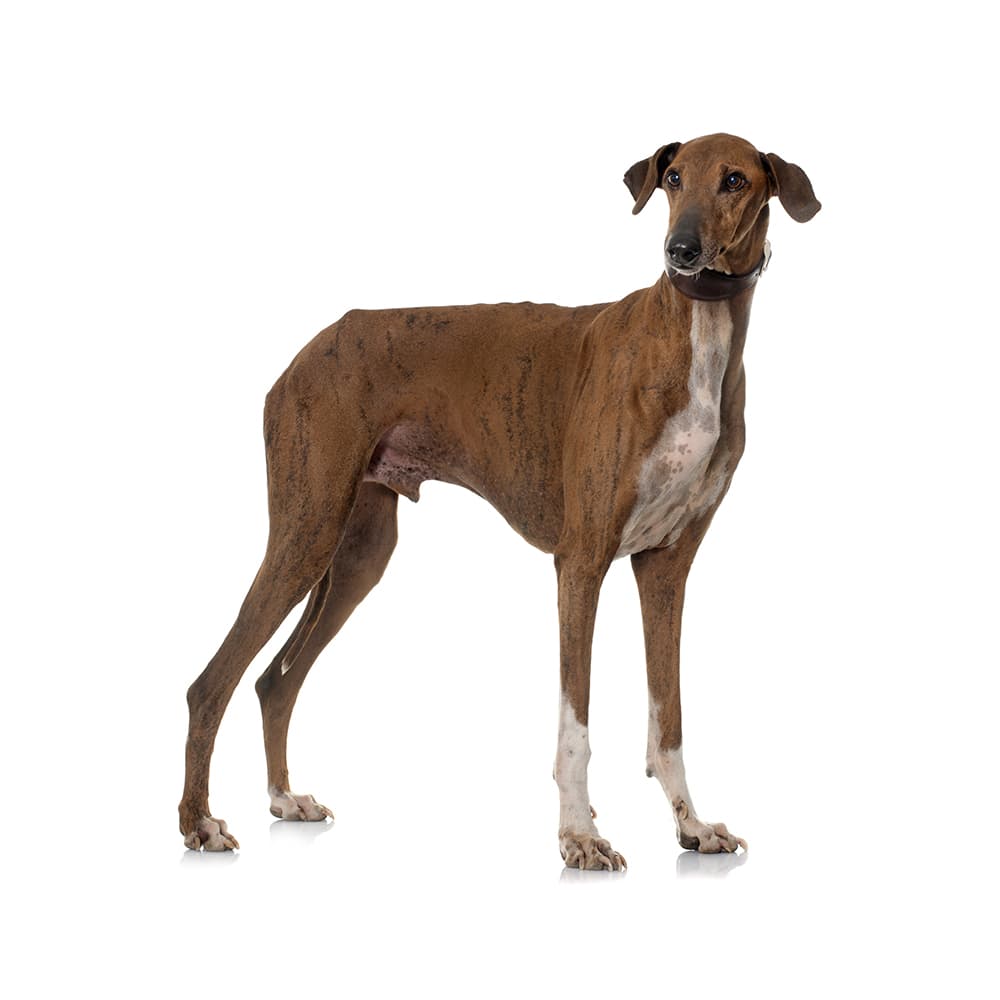Discover your dog's connection to this breed and 200+ others


Discover your dog's connection to this breed and 200+ others



The Azawakh is an ancient breed that originated in the Sahel region of Africa, specifically in countries like Mali, Niger, and Burkina Faso. For centuries, the nomadic Tuareg people have used these dogs as hunters, companions, and guardians, valued for their speed, agility, and alertness. The breed is considered a part of the sight hound group, which are breeds known for their exceptional vision and high-speed chase ability. Azawakhs were introduced to Europe in the late 1970s and to North America in the 1980s.
Though generally healthy, the Azawakh can suffer from seizures, hypothyroidism, and spondylosis (a spinal condition). They may also be prone to a condition called masticatory myositis that causes severe pain when an affected dog tries to open its mouth. Though rare, some instances of hip dysplasia may occur, as well as bloat. Bloat is a life-threatening condition that can come on suddenly, so it’s important to know the warning signs and get an affected dog immediate veterinary care. Like many breeds, the Azawakh may be affected by progressive rod-cone degeneration, hyperuricosuria, and degenerative myelopathy. Genetic screening for these and other conditions can assist veterinarians with diagnosis and proactive care, as well as help breeders identify affected and carrier dogs. As a Sighthound breed, they are known to be more sensitive to barbiturate anesthetics. Thiopental, or any other thiobarbiturate, should not be used on these dogs.
Azawakhs are known for their deep loyalty and affection towards their owners. They are protective and can be reserved around strangers, but are generally not aggressive without provocation. They are intelligent and independent, which can sometimes be mistaken for aloofness or stubbornness. As sighthounds, they have a high prey drive and may chase smaller animals. Despite their energy, they are also known to be calm and quiet indoors.
Their slim build and short coat make them sensitive to cold weather, and they may require extra care in such climates. Regular exercise is a must for this athletic breed, and they appreciate the opportunity to run in a safe, enclosed area. They are known to excel in dog sports such as lure coursing and agility.
A canine genetic lineage is a group of individuals or entire breeds that descended from common ancestors predating modern breed formation. Often these lineages are associated with a ‘type’ of dog with a unique historical working role and associated behaviors (e.g., herding, scent hunting, etc.).
Sighthound breeds date back thousands of years, they were bred for speed and agility. The physical characteristics of sighthounds include long lean bodies with a deep chest and long legs and allow them to run fast over short distances. Sighthounds are excellent hunters for fast-moving prey while using their sight rather than scent to find and follow their prey. They tend to be independent, but also gentle and affectionate with their families.
Example breeds with ancestry from this lineage include Greyhound, Irish Wolfhound, and Whippet.
They have been known to be the companions of the nomads of the South Sahara for hundreds of years.
The American Kennel Club (AKC) officially recognized the breed in 2019.
https://www.akc.org/dog-breeds/azawakh/
https://www.petmd.com/dog/breeds/c_dg_azawakh
https://vgl.ucdavis.edu/breed/azawakh
Recommended by top vets with decades of experience
21 breeds
64 genetic health markers
50 genetic trait markers
